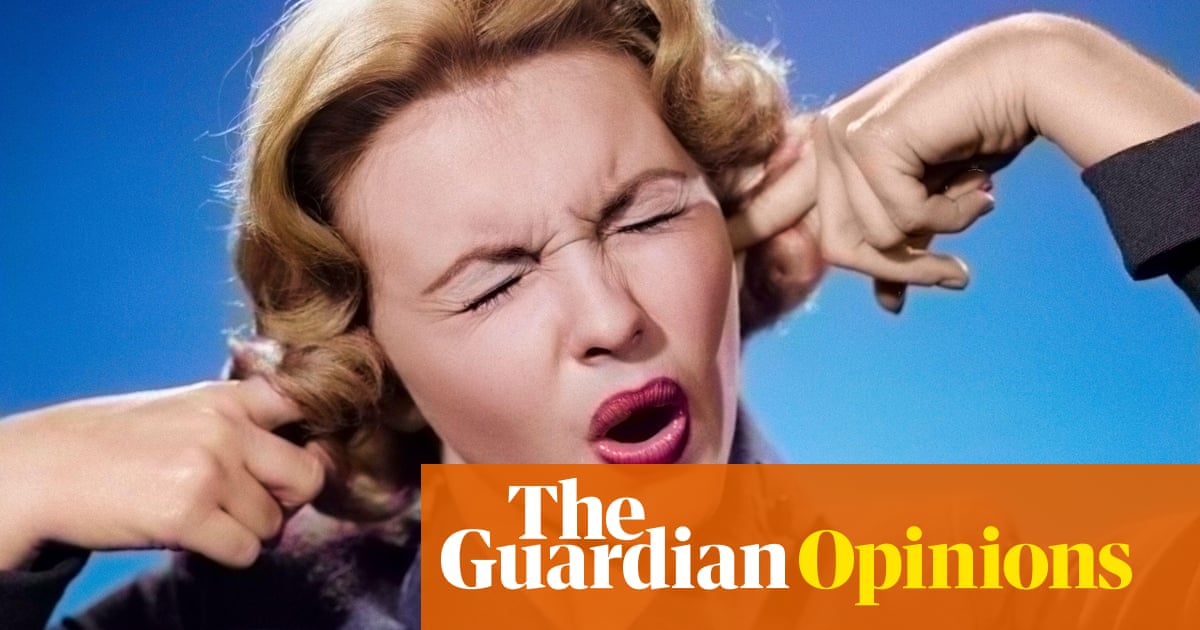In case you aren’t related to me and didn’t know, it was my dad’s birthday last week. Looking through photos and various paraphernalia to make the perfect post about him that he almost certainly wouldn’t see, I found a note I had written to him as a child. In it, using language that would now be considered “toxic” and “victim- blaming”, I apologise for yelling at him for picking his nose (while also pointing out how disgusting I found it).
Not to try and excuse my behaviour which I would describe medically as “being a little shit”, but occasionally in life we can look back at our child selves and understand something we didn’t know at the time. This is one of those instances. To me, I can see the little shittery, but I can also see something else that probably caused this behaviour towards my dad, a condition outside my control:misophonia. Now that ADHD has had its moment in the sun, I am here to push formycause.
I have explained misophonia before, but essentially it is a disorder where specific sounds or movements from people around you act as triggers, causing extreme disgust, distress or even hatred. It’s not the feeling you get when you’re a bit annoyed at someone’s open-mouth chewing; it’s more like your entire body suddenly overflows with rage and sometimes vomit.
The small amount of research into misophonia (it was onlynamedin 2001) indicates it starts in childhood and may initially be focused on one particular family member. Hence, yelling at my dad for picking his nose. Which is disgusting by the way. My misophonic focus soon expanded to the rest of humanity, and since then barely a day has passed in which I haven’t experienced some form of trigger.
A few days ago I was watching a new Netflix show where one of the main characters was upset by a colleague eating an apple (very familiar) and she said he probably has misophonia, and then explained what it was. I was really surprised by what I felt when she explained it so matter-of-factly, and had it taken into consideration. It was the same feeling I get when I talk to someone else who has this condition, a relief that someone else understands and can give you appropriate support. The feeling that it has been taken seriously as a real thing. Because I know it sounds weird, and probably a bit made up.
It’s embarrassing to admit that a sound someone is making without even thinking about it has turned your insides into one of those primary school science fair volcanoes with vinegar and baking soda. That you can’t listen to a conversation because someone is scraping a bowl. That you can’t go to a movie with a friend who slurps their drink too loud.
Even though I’ve written about misophonia, I still find it hard to talk about in real life. I find it hard to admit to a new friend and I find it very difficult to ask anyone to adjust their normal behaviours for me. I don’t want to be a nuisance, or burden them. I’d rather put myself through the unpleasantness than ask them to change. But to feel able to ask for these things is a huge relief.
Misophonia has clearly been with me forever, but as an adult I’ve also had the fun addition of some new mental health struggles. I have had a couple of depressive episodes in recent years, one right now as it happens (yes I am a hero), which is another thing I have found it very difficult to talk to people about. I still find it hard to be depressed around other people, even those who love me and will take my company in whatever state it’s in. I am on a slow journey with it, but I have found that being open about my mental health with people – employers, colleagues, housemates, etc – has only been helpful.
Misophonia feels like a different thing, but it’s still related to my mental health – they sort of egg each other on. I am also on the slow journey with talking about it. I want to be more open about it – for most of my life I have gritted my teeth and blocked my ears, only letting the closest people in my life into my unusual reality.
It’s something that has heavily impacted my day-to-day and I have been too embarrassed to tell most people about it. But alongside society’s growing awareness around neurodiversity and mental illness, I am getting better at knowing it is OK to ask people for adjustments to their behaviour, or more care, or a different way of doing things, if it will help.
Whether it’s depression or misophonia, having it taken seriously by other people is so important. So I am here to start the conversation. I am willing to become the face of misophonia. The face is scrunched up angrily at the sound of someone stirring their tea, but it’s out there.
In Australia, support is available atBeyond Blueon 1300 22 4636,Lifelineon 13 11 14 and atMensLineon 1300 789 978. In the UK, the charityMindis available on 0300 123 3393 andChildlineon 0800 1111. In the US, call or textMental Health Americaat 988 or chat 988lifeline.org
